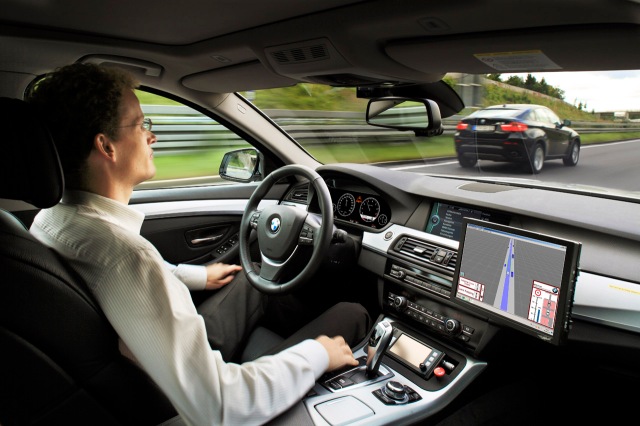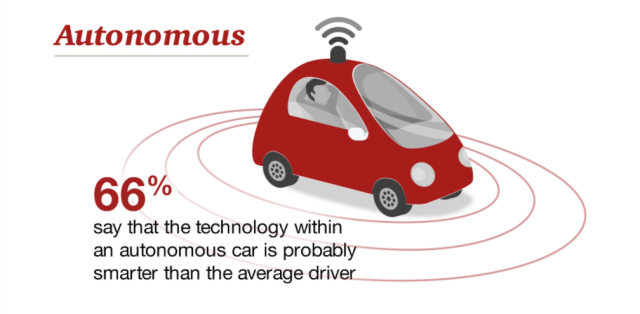The future is well on its way, and it looks like that future is going to be fully autonomous. We’re getting closer and closer to a world in which self-driving cars will share the road with regular drivers. In fact, it might be here sooner than you might think. Based on current claims it looks like there’s going to be a lot of progress made over the next 5 to 10 years.
Even recently, over the past few weeks, there’s been some significant developments. While Uber and Google have been testing out the technology for a while, Waymo (Google’s self-driving car unit) has just started testing autonomous cars with real human customers. South Korea has just allowed Samsung to begin testing self-driving car technology, and even Apple is reportedly testing out a car of their own in California.
So a future with autonomous cars in it is looking more and more likely. While research has been conducted regarding ethical concerns of self-driving vehicles, how this new technology could reshape our cities. What I’m curious about is how people currently perceive driverless cars and why they feel the way they do.
There has already been some research conducted around this topic, and this research is what I will be using as a springboard for my own research project. For my research project I will be examining research conducted by several different groups in several different countries. I will also be conducting my own survey and comparing the results with prior surveys. The surveys I will be comparing with my own come from 4 main sources.
There are 2 public opinion surveys conducted by the American Automobile Association (AAA), one from 2016, one from 2017. There’s a survey conducted by PricewaterhouseCoopers (PwC) in 2016, and there’s an older survey from the University of Michigan’s Transportation Research Institute published in 2014. This research found some interesting trends but there are also some areas that might require further research. I’m curious to if the trends present in this research exist among UOW students which is why I’ll be doing a brief survey of my own.
For example, in both surveys conducted by the AAA 3/4 of U.S. drivers said they would be afraid to ride in a completely autonomous car, and in the 2016 survey only 1/5 drivers said they would trust the car to drive by itself. By contrast, PwC’s survey found 66% of respondents in the U.S. said they felt that autonomous cars were probably smarter than the average human driver, and in the University of Michigan’s research the majority of people surveyed thought it was “very likely” or “somewhat likely” that completely self-driving vehicles would reduce the number of automotive accidents.
The results from all four of these sources also show that there may be some trends related to age and gender. Older respondents are more likely to show concern about autonomous vehicles than younger respondents. Similarly, females said they were more “afraid to ride in a self-driving vehicle” than males. These are the kind of trends I want to examine with my research.
I will also be conducting some more in-depth research into the potential reasons behind the apprehension people seem to be feeling about self-driving cars as well as the reasons people do or do not want to share the roads with them. The CEO of Mercedes-Benz USA believes that once someone test drives an autonomous car for themselves, they’re converted. Could it be that distrust of autonomous cars is simply due to a lack of experience with them? These are the kinds of things I will be aiming to find out through more thorough research.
My finding will be presented in an essay format, although if I have time I would like to change it up and incorporate video somehow.
Timeline
Week 10: More in-depth research. Create and share survey.
Week 11: Examine survey results, compare with prior research.
Week 12: Write essay draft.
Week 13: Finalise and submit essay.
References
Bergen, M 2017, ‘Google will begin testing autonomous cars with consumers’, Automotive News, <http://www.autonews.com/article/20170425/COPY01/304259948/google-will-begin-testing-autonomous-cars-with-consumers>.
Bergen, M 2017, ‘Check Out the Lexus That Apple’s Using to Test Self-Driving Technology’, Bloomberg, <https://www.bloomberg.com/news/articles/2017-04-27/check-out-the-lexus-that-apple-s-using-to-test-self-driving-car-technology>.
Collett, T 2017, ‘Samsung To Test Autonomous Cars in South Korea’, The Motor Report, <http://www.themotorreport.com.au/65070/samsung-to-test-autonomous-cars-in-south-korea>
Doctorow, C 2015, ‘The problem with self-driving cars: who controls the code?’, The Guardian, <https://www.theguardian.com/technology/2015/dec/23/the-problem-with-self-driving-cars-who-controls-the-code>
Driving the future: understanding the new automotive customer 2016, PricewaterhouseCooper, <http://www.pwc.com/us/en/industry/entertainment-media/publications/consumer-intelligence-series/autotech.html>.
Forecasts 2017, Driverless car market watch, <http://www.driverless-future.com/?page_id=384>.
Mitchell, R 2016, ‘Human drivers will bully robot cars, says CEO of Mercedes-Benz USA’, Los Angeles Times, <http://www.latimes.com/business/la-fi-hy-live-updates-2016-la-auto-show-human-drivers-will-bully-robot-cars-1479247249-htmlstory.html>.
Schoettle, B, Sivak, M 2014, A survey of public opinion about autonomous and self-driving vehicles in the U.S., the U.K., and Australia, University of Michigan, <https://deepblue.lib.umich.edu/handle/2027.42/108384>.
Stepp, E 2016, Three Quarters of Americans “Afraid” to Ride in a Self-Driving Vehicle, American Automobile Association, <http://newsroom.aaa.com/2016/03/three-quarters-of-americans-afraid-to-ride-in-a-self-driving-vehicle>.
Stepp, E 2017, Americans Feel Unsafe Sharing the Road with Fully Self-Driving Cars, American Automobile Association, <http://newsroom.aaa.com/2017/03/americans-feel-unsafe-sharing-road-fully-self-driving-cars>.
Stone, J, Curtis, C, Legacy, C, Scheurer, J 2017, ‘We must plan the driverless city to avoid being hostage to the technology revolution’, The Conversation,<https://theconversation.com/we-must-plan-the-driverless-city-to-avoid-being-hostage-to-the-technology-revolution-75531>.


